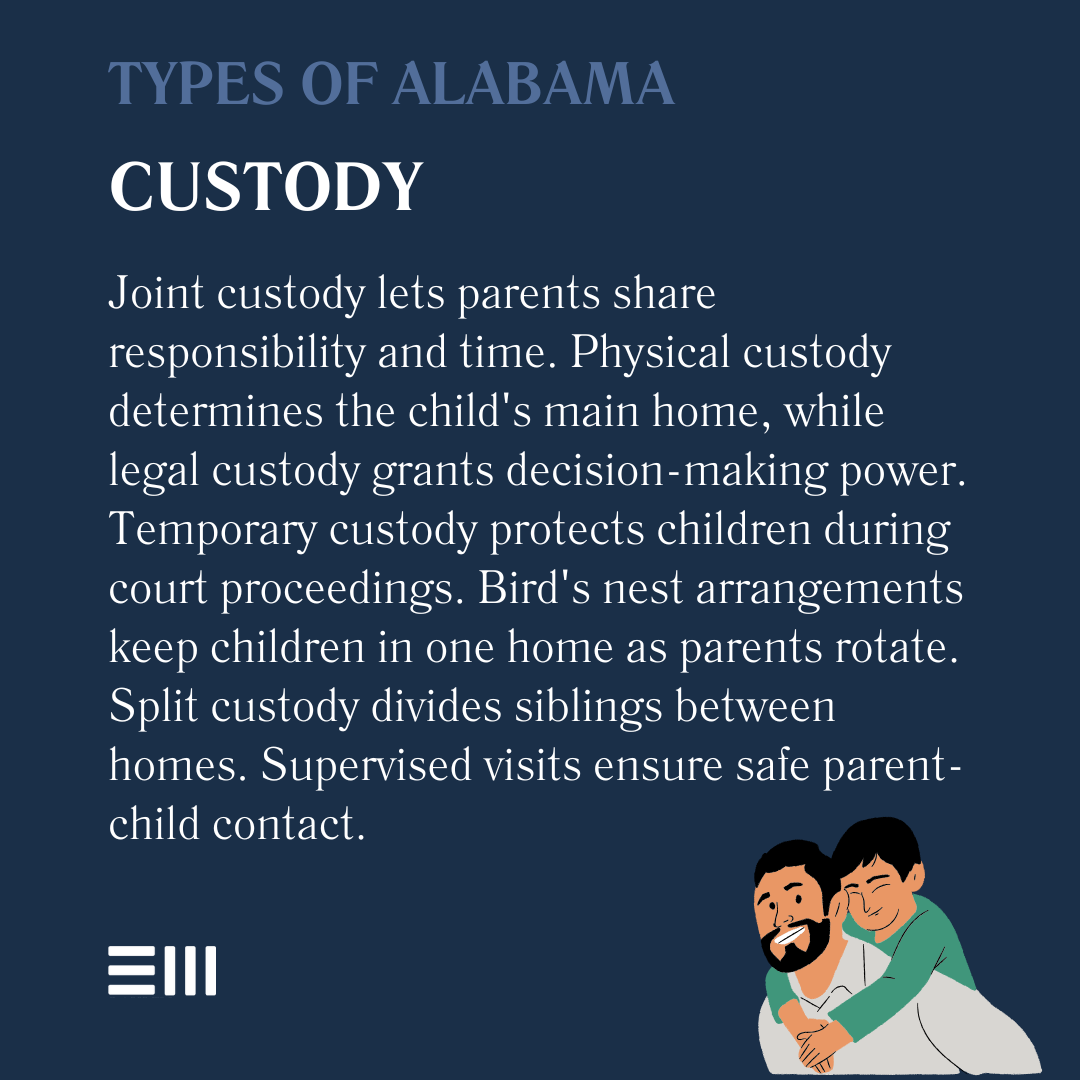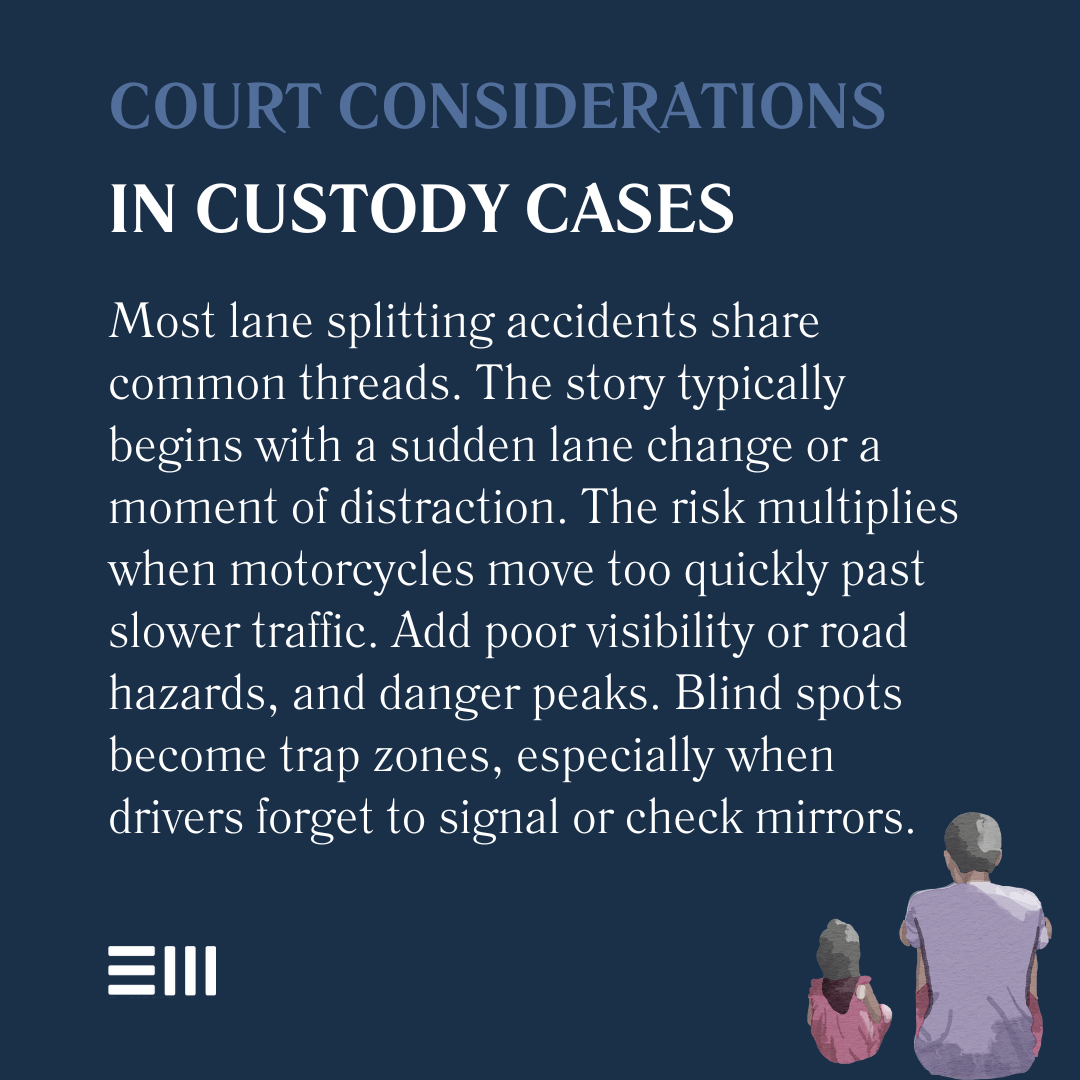"I just want to be there for my kids." These seven words echo through Alabama's courtrooms as fathers fight to maintain meaningful relationships with their children.
Gone are the days when mothers automatically received primary custody.
Today's Alabama courts recognize that children thrive when both parents play active roles in their lives, marking a transformative shift in how the state approaches fathers' rights in custody cases.
Understanding Your Rights as a Father in Alabama
Before diving into specific custody matters, Alabama fathers should understand the fundamental rights they hold in the eyes of the law.
The state recognizes that maintaining strong bonds between fathers and their children serves the best interests of the child.
These rights apply whether you're married, divorced, or were never married to your child's mother.
- Equal consideration in custody decisions regardless of gender;
- Right to petition for custody or visitation;
- Access to children's medical and educational records;
- Participation in major decisions affecting the child;
- Protection under anti-discrimination laws;
- Right to modify existing custody orders;
- Opportunity to seek joint physical and legal custody;
- Right to contest adoption proceedings;
- Access to mediation services;
- Right to appeal court decisions;
- Authority to request drug testing or psychological evaluations; and
- Input on religious upbringing and education choices.
These rights form the foundation of every father's custody case in Alabama courts. Remember that exercising these rights effectively often requires proper documentation and legal guidance.
Understanding and actively pursuing these rights demonstrates your commitment to your children's well-being.
Types of Child Custody in Alabama
Alabama recognizes several forms of custody arrangements to accommodate diverse family situations and ensure children's well-being.
Each type serves different family dynamics and can be modified as circumstances change.
- Physical Custody: Determines where the child lives;
- Legal Custody: Controls decision-making authority;
- Joint Custody: Shared responsibilities between parents;
- Sole Custody: Primary authority rests with one parent;
- Bird's Nest Custody: Children remain in the home while parents alternate;
- Split Custody: Siblings divided between parents;
- Temporary Custody: Short-term arrangements during proceedings;
- Supervised Visitation: Monitored parent-child interactions;
- Virtual Visitation: Technology-assisted communication;
- Third-Party Custody: Placement with non-parent caregivers; and
- Emergency Custody: Immediate placement for safety concerns.
Understanding these distinctions helps fathers pursue the most appropriate custody arrangement for their family's unique circumstances and needs.
Courts often favor arrangements that maximize children's time with both parents when possible.
Factors Courts Consider When Determining Custody
Alabama courts evaluate multiple aspects of both parents' situations when making custody decisions.
Knowing these factors helps fathers present their strongest case and prepare effectively for custody proceedings.
- Child's relationship with each parent;
- Parents' physical and mental health;
- Home environment stability;
- Child's educational needs;
- Financial capability;
- Work schedule flexibility;
- Extended family support;
- History of cooperation between parents;
- Child's preference (if age-appropriate);
- Geographic proximity between parents;
- History of domestic violence or substance abuse;
- Willingness to support the other parent's relationship;
- Parent's moral character and lifestyle;
- Child's social connections and community ties;
- Special needs accommodation abilities;
- Cultural and religious considerations;
- Parent's ability to foster relationships with extended family;
- History of following court orders;
- Evidence of parental alienation attempts; and
- Environmental stability and safety.
Courts weigh these factors collectively rather than focusing on any single element. Document how you positively address each factor to strengthen your position.
Maintaining detailed records and evidence supporting your parenting capabilities significantly impacts custody determinations.
Common Questions About Fathers' Rights in Alabama
Navigating custody matters raises many questions for fathers. Here are answers to the most frequent concerns faced by Alabama dads, based on current state laws and court precedents.
What Are My Rights if I'm Not Married to My Child's Mother?
Unmarried fathers must establish paternity legally through voluntary acknowledgment or genetic testing before pursuing custody rights.
Once paternity is confirmed, you have the same rights as married fathers. The process involves filing specific documents with the state and may require court appearances.
How Can I Modify an Existing Custody Order?
Changes to custody orders require demonstrating a material change in circumstances affecting the child's best interests.
Examples include relocation, significant income changes, or safety concerns. Courts typically require waiting 12 months between modification requests unless emergency circumstances exist.
Do I Have to Pay Child Support if I Don't Get Custody?
Child support obligations exist independently of custody arrangements. Courts determine support based on both parents' incomes and the custody schedule.
Alabama uses specific guidelines to calculate support amounts, considering factors like healthcare costs and daycare expenses.
Can I Get Joint Custody if the Mother Objects?
Courts prioritize children's best interests over either parent's preferences. Demonstrate your parenting capabilities and commitment to co-parenting effectively.
Documentation of positive involvement in your child's life strengthens your position significantly.
What if My Ex Denies My Visitation Rights?
Document all denied visits and file a contempt motion. Courts take interference with custody orders seriously and may modify arrangements accordingly.
Keep detailed records of attempted visits and communications about visitation.
How Does Relocation Affect Custody Rights?
Parents must notify each other and the court before moving more than 60 miles away. The non-moving parent can object, triggering a hearing to evaluate the move's impact. Courts consider factors like educational opportunities and family support in the new location.
What Rights Do Fathers Have Regarding School Choices?
Parents with legal custody rights can participate in educational decisions and access school records. This includes choosing schools, attending parent-teacher conferences, and participating in educational planning.
Steps to Protect Your Rights as a Father
Taking proactive steps strengthens your position in custody proceedings and protects your relationship with your children. Implementing these practices demonstrates your commitment to responsible parenting.
- Document all time spent with children;
- Maintain detailed records of expenses and support;
- Keep communications with the other parent professional;
- Stay actively involved in children's education and healthcare;
- Follow all court orders precisely;
- Build a support network of family and friends;
- Create a stable home environment;
- Be flexible with scheduling when possible;
- Avoid speaking negatively about the other parent;
- Seek counseling or parenting classes if helpful;
- Save important emails and text messages;
- Keep a parenting journal;
- Attend all scheduled visitations;
- Participate in school and extracurricular activities; and
- Maintain consistent child support payments.
These practices not only strengthen your custody case but also contribute to your children's emotional wellbeing and development.
Secure Your Parental Rights Today
Every day matters in protecting your relationship with your children. Our experienced family law attorneys understand the unique challenges Alabama fathers face in custody cases.
Contact us today for a confidential consultation to discuss your rights and develop a strategy tailored to your situation.


